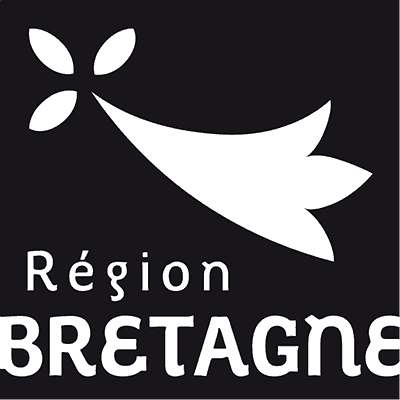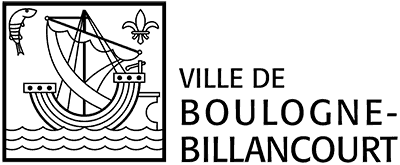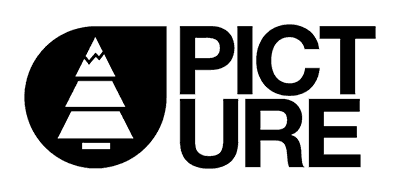[COMMUNITY] Low-tech Lab Grenoble News
Publication date : 7 April 2021
Authors : Sacha, Martial and Kevin for Low-tech Lab Grenoble
Location : Grenoble
In recent years, communities have emerged to spread low-techs on a regional scale. Today we check in with the community in Grenoble: Low-tech lab Grenoble.
Could you tell me a bit about how Low-tech Lab Grenoble was created ?
Low-tech lab Grenoble was officially born on 8th January 2019, the date of its first general meeting. It was the result of several months of preparation by a group of motivated individuals who wanted to learn how to do DIY, set up projects around low-tech and bring their dynamism to Grenoble. At the end of 2019, the city council provided a headquarters for our charity, on 48 Avenue, Washington, in the Abbaye district. Despite the unusual circumstances of the past year, we still reached a figure of fifty members, with over twenty active members, and welcomed our first trainee, in addition to a civic service volunteer.
With the health crisis, which activities were you able to continue with last year?
The Low-tech Grenoble tour, the organisation’s favourite summer activity, took place for its second year last August. It brought together around twenty people, who were all eager to go and meet the participants in our region by bike. We cycled from Grenoble towards the Voiron commune to visit Barnabé Chaillot, then after we crossed the beautiful Chartreuse (the mountain, not the liqueur), we arrived near Chambéry to visit David Szumilo (Oxalis, Du Soleil Dans nos Assiettes). Different places, different characters, but each time the same values of sharing, self-management and goodwill. What is really important to us is that hosts and members have a good time, and of course that they leave with a higher level of knowledge and expertise on low-techs, but not just this, as we also implicitly learn how to communicate and live together. On a technical level, we were able to work on projects about how to recover computer batteries, self-sufficiency through solar power, “the car of the future” (Watch Barnabé Chaillot’s video about this) and recognising seeds with Barnabé. During the second stage with David, we worked a lot on the issue of food. We used a solar-powered jar sterilisation system, wooden and pellet cookers (which were very effective), and tried out cider production. He also shared with us his experience in ecological and economic building innovation, as well as his personal expertise on mass stoves.
In addition to that, we were able to continue several workshops on site, but there have been few outreach events this year, as you might expect. However, we advanced the subject of low-techs in the fields of education and research, creating the LowTRE community (Low-tech Research and Education), a webinar and an in-person event held in October. We also had the pleasure of welcoming our first trainee, Anne-Lou, who worked on the design of a water filter using activated carbon. This was in response to a request from Culture Ailleurs, an organisation that is becoming reacquainted with how activated carbon is produced in the area.
– Forum LowTRE : https://forum-lowtre-ecosesa.univ-grenoble-alpes.fr/
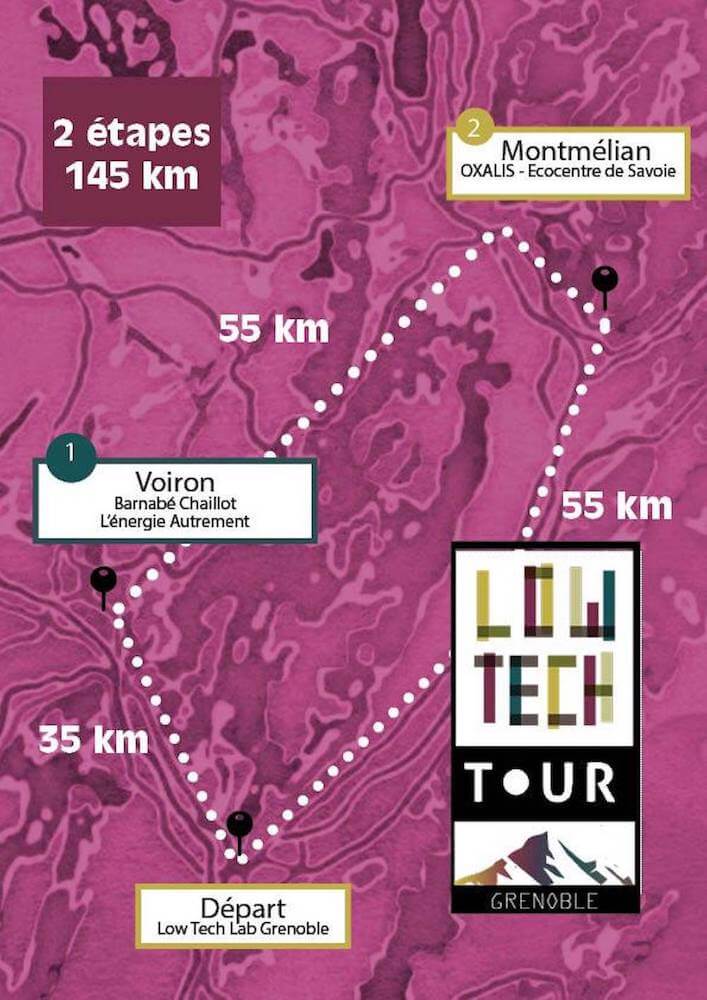
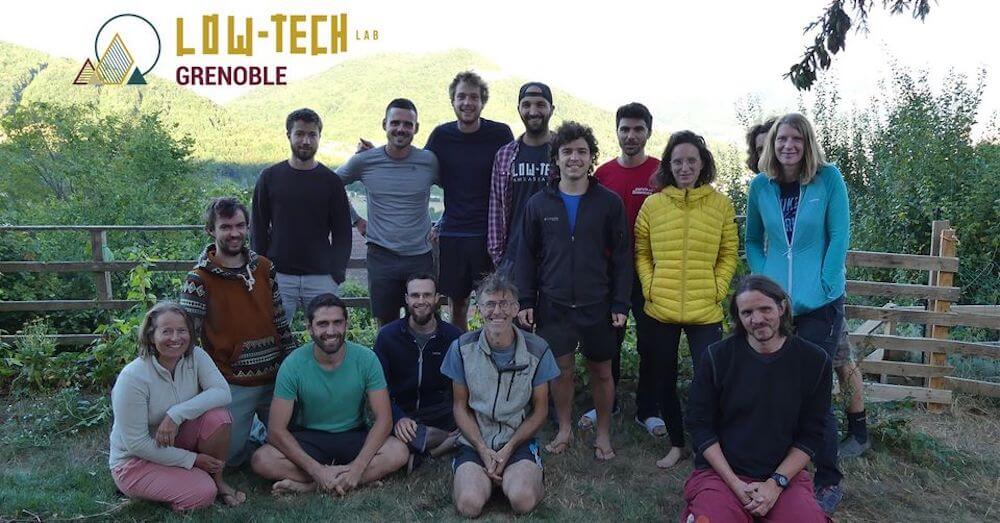
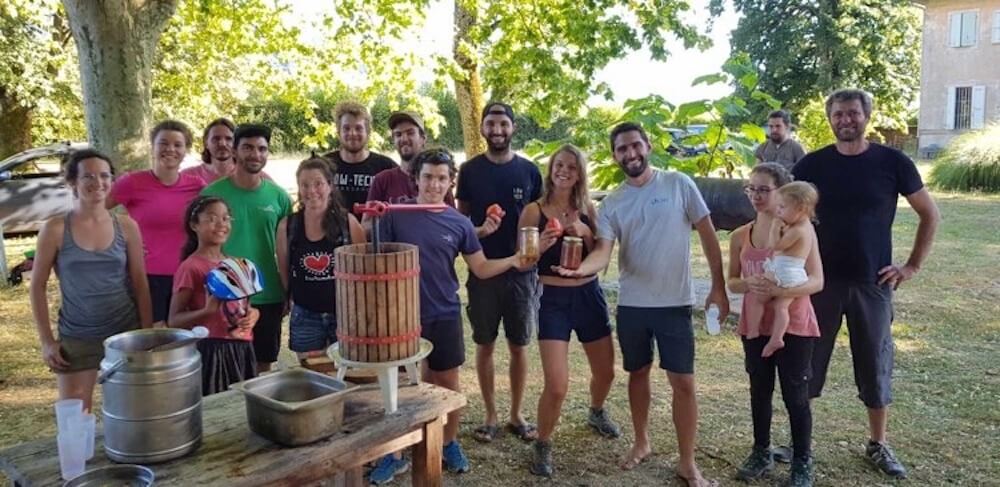
What are your hopes for 2021 ?
We aren’t too fussy, our biggest hope is obviously for conditions to allow us to organise workshops, events and training courses as easily as possible. Beyond that, we have a low-tech and fuel poverty project, with the help of Laure, our civic service volunteer, and Sophie, our new president, who is also part of the organisation OseOns. We also have a community volunteering projected planned with the Grenoble City Council, to equip the Rondeau reception village with a social outdoors space, including a barbecue. We are currently working on a wooden kitchen for events which is user-friendly, can be move around by bike to host various upcoming events and can teach about our fantastic low-tech wood cooker. On the organisational side, we’ve been working since December with a small group to build a shared governance proposal for the organisation, and are looking forward to trying it out on ourselves. Another idea that has been on our minds for quite some time is setting up a citizen’s counter, based on the model of Boutiques Des Sciences, to recreate the link between Science and Society by placing the academic world in the service of societal expectations. And finally, what would the year be without a nice Low-tech Grenoble Tour this summer? Or two?! After the experiences we had with the first two editions, perhaps it’s time to think a little bigger… to be continued :)
In terms of the day-to-day operations of the organisations, what tools do you use to communicate ? To build together ? For meetings ? Digital tools ? …
The current situation obviously makes it complicated to hold meetings on site in the evening, so we migrated the coordination part to two free platforms: Framateam for chatrooms and Jitsi for face-to-face interactions. We still try to see each other as much as possible, whether that be to do the odd DIY job or just spending time together and building our collective history, because nothing replaces human connection. We hold one meeting per month to pass on and vote for external requests, allocate our resources for upcoming events and present on progress made on current projects. Then the project groups organise themselves as they wish.
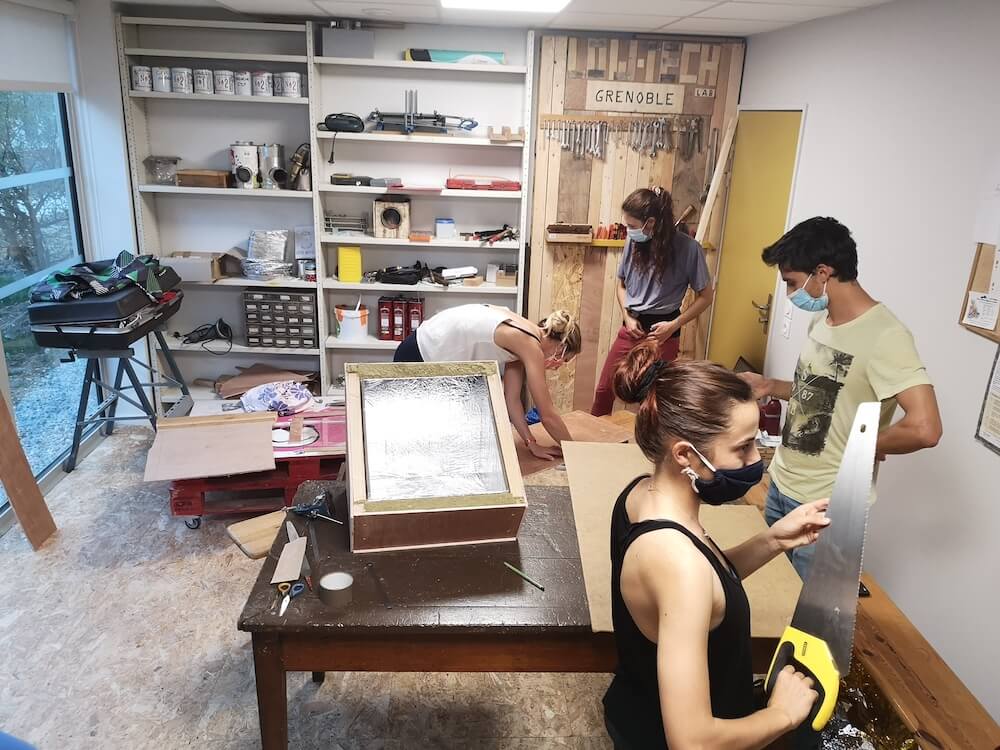
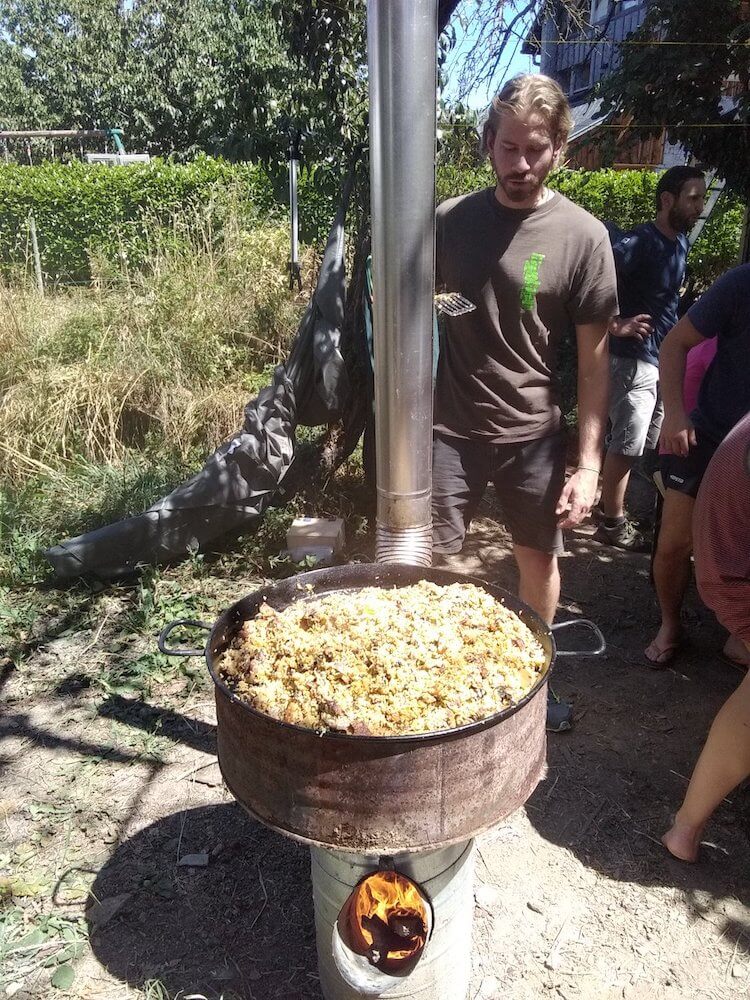
Who supports Low-tech Grenoble ? Partner organisations ? Funders ? Who does Low-tech Lab Grenoble collaborate with ?
As mentioned earlier, the city council supports us by providing us with our headquarters, and also asks us to participate in events (Biennial Cities in Transition) or to lead construction sites. Two organisations share our site with us, Planète Sciences AuRA and Archipel. For the year’s projects, we are collaborating with the organisation OneOns on the research-action side and with local groups (Maisons des familles, Energ’Y Citoyennes) for the workshops and outreach side. We have also collaborated with several other organisations, such as Sentiers du Devenir on events, the Greener Festival in Lyon, and we are in discussion with GSB (Grandes Surfaces de Bricolage) in Grenoble about re-using their waste materials. We also work with the Eco-SESA research programme, particularly within the framework of our LowTRE programme. We still have little financial support, as we spend relatively little. However, we are starting to develop in this sector, as we look to make the organisation viable for the people who invest time energy into it !
Low-tech Lab Grenoble has launched LowTRE. Can you tell us more about that ?
In June 2020, with members of the academic and voluntary sectors, we launched the Low-tech Research and Education Community (LowTRE). We had noticed that several academic low-tech initiatives were developing in France and we wanted to create a relationship. In addition to a webinar in June and an in-person event in October 2020, we used an online forum to exchange and share resources. This community aims to generate awareness and decision-making within academia on the need to rethink our actions by adapting them to the current challenges of a society that we want to be sober and resilient. Making it clear that we remain humble in our approach and that we learn as we go along! The community is open to teachers, researchers and students in all disciplines, and also to any group or individual interested in low-techs in research and education. The first work groups have been launched, on subjects such as capitalising on and spreading knowledge. Please feel free to visit the forum to find out more !
Sacha, Martial and Kevin for Low-tech Grenoble
